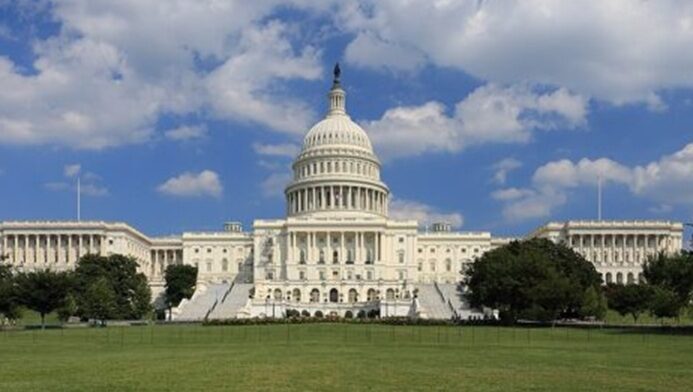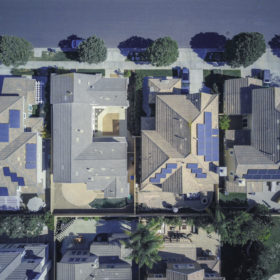The Bureau of Land Management (BLM) is seeking public input to inform development of an environmental assessment for the proposed Socorro Solar Energy project in southeastern La Paz County.
According to the application submitted by developer EDF Renewables in October 2021, the proposed Socorro project is designed to produce up to 350 MW of solar energy along with battery energy storage.
The BLM, Arizona State Office, completed the solar variance review process and determined that it is appropriate to continue processing the Socorro Solar Project application. At this time, BLM AZ is requesting concurrence on the State Director’s Socorro Solar Project Variance Determination.
Concurrence will not approve the proposed project, but allows the BLM to continue processing the application and initiate its National Environmental Policy Act (NEPA) process, including this public scoping and the preparation of an environmental assessment or environmental impact statement
July 1 marked the start of a 38-day public scoping period for an environmental assessment to analyze and disclose potential impacts. The BLM is seeking input relevant to the development of alternatives, environmental analyses and resource protection measures.
The project is expected to take up 3,066 acres of the nearly 6,000-acre site located within a Renewable Energy Development Area (REDA) as designated by the Arizona Restoration Design Energy Project Record of Decision issued by BLM in January 2013.

The clean electricity is expected to be delivered to the grid through the Ten West Link 500 kV bulk transmission line anticipated to be approximately 1.3 mile, which would cross the Central Arizona Project (CAP) and Interstate 10 to the south of the CAP. The application includes 30-foot wide access road for which the BLM is seeking a right-of-way for 40 years.
Project information, including maps, will be available on the project website within the BLM’s National NEPA Register.
Environmental assessments evaluate potential impacts of the project and addresses Native American religious concerns; threatened, endangered, and sensitive species; socioeconomic effects, environmental justice and other issues. The environmental assessment also looks at potential mitigation measures that can lessen environmental impacts.
In April the Bureau of Land Management (BLM) released final rules governing the leasing and rental of renewable energy projects sited on public lands. The rules were developed with consultation from the Solar Energy Industries Association (SEIA). Earlier in the year, the BLM released a draft analysis of the Utility-Scale Solar Energy Programmatic Environmental Impact Statement (PEIS) that identifies 22 million acres across 11 states that are best suited for solar development. The document calls for solar development to be focused on areas with fewer sensitive resources, less conflict with other uses of public lands, and close proximity to transmission lines, having identified 200,000 acres of land near existing transmission infrastructure.
A recent study by the Energy Markets and Policy (EMP) department at the Berkeley National Laboratory, in collaboration with the University of Michigan and Michigan State University, found that engaging the public is important when siting large-scale solar energy projects.
“The public’s input during scoping will help inform the BLM’s development of a range of alternatives that will be analyzed,” said William Mack, Colorado River District Manager. “We invite our federal, state, tribal, as well as local partners, stakeholders, and the public to participate in scoping.”
The United States has set a goal of achieving 100% clean energy by 2035. To do so, a vast amount of land needs to be used for solar energy production. The National Renewable Energy Lab estimates that if the United States were to meet all of its electricity needs with solar alone, around 10 million acres, or 0.4% of the area of the country, would be needed.
Comments must be submitted in writing by close of business on August 7, 2024. Written comments are encouraged and may be submitted by mail or email at BLM_AZ_CRD_SOLAR@blm.gov or within the project website in BLM’s National NEPA Register. If submitting by mail, send to: BLM Arizona State Office at 1 North Central Avenue, Suite 800, Phoenix, AZ 85004, and please note “Attention: Derek Eysenbach/Socorro Solar Project.”
If approved, the Socorro project is scheduled to begin construction in 2025.
This content is protected by copyright and may not be reused. If you want to cooperate with us and would like to reuse some of our content, please contact: editors@pv-magazine.com.









By submitting this form you agree to pv magazine using your data for the purposes of publishing your comment.
Your personal data will only be disclosed or otherwise transmitted to third parties for the purposes of spam filtering or if this is necessary for technical maintenance of the website. Any other transfer to third parties will not take place unless this is justified on the basis of applicable data protection regulations or if pv magazine is legally obliged to do so.
You may revoke this consent at any time with effect for the future, in which case your personal data will be deleted immediately. Otherwise, your data will be deleted if pv magazine has processed your request or the purpose of data storage is fulfilled.
Further information on data privacy can be found in our Data Protection Policy.